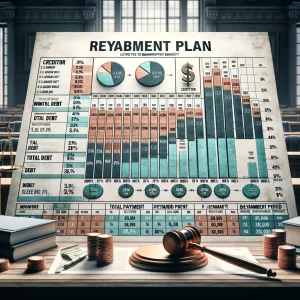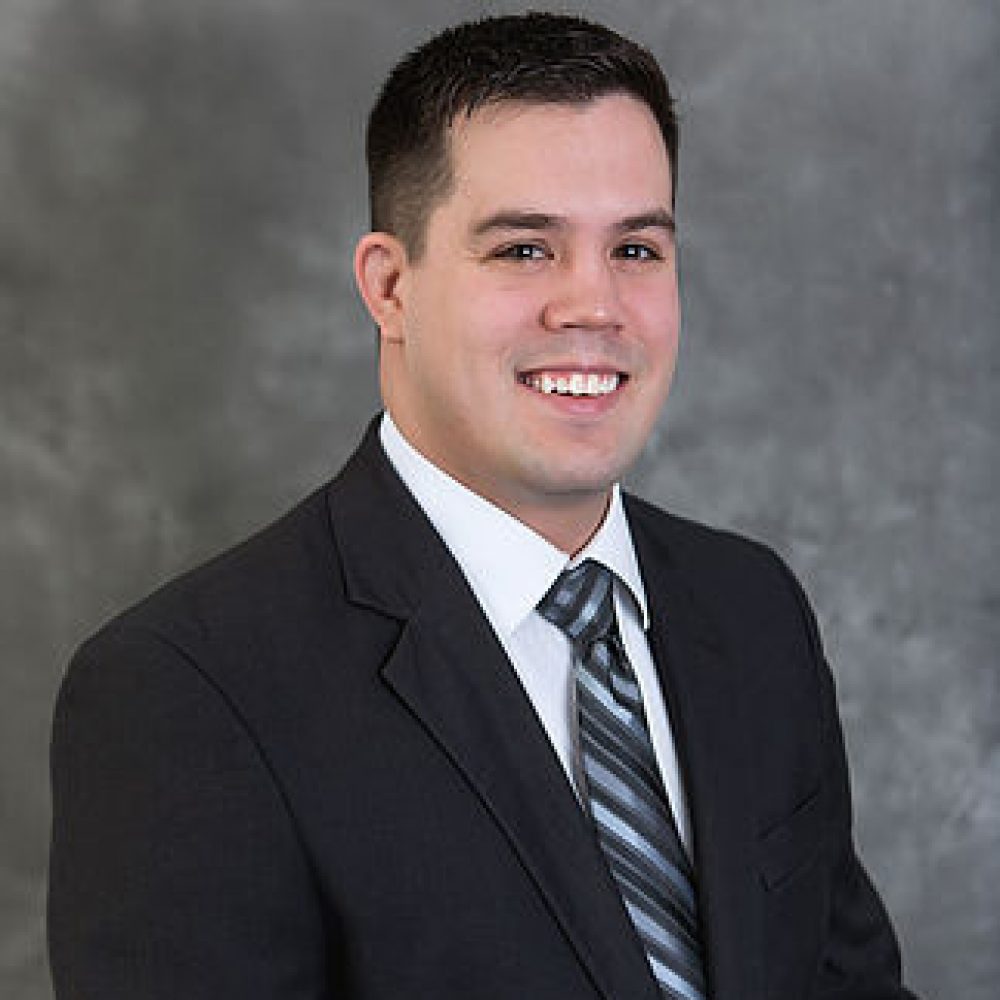Being buried under debt is tough. It takes away your peace and threatens your future. But there is hope. Chapter 7 bankruptcy is that hope, offering a new start financially. A skilled Boise bankruptcy lawyer will tell you, with the right help, you can move past debt.
Feels like you’re stuck in endless debt? It’s time for a change. By choosing to file bankruptcy in Boise, ID, you can get back on your feet. This means stopping the endless calls from creditors and starting anew. With guidance from expert legal services, Chapter 7 bankruptcy can be the key to a brighter financial future.
Do I even qualify for a Chapter 7?
Facing financial stress can be overwhelming. The thought of Chapter 7 bankruptcy might offer hope. To qualify in Idaho, you must pass the means test if your income is above the median. The test checks if your case would be unfairly taking advantage of the system, based on your finances.
Some situations could stop you from qualifying. If you had a bankruptcy case dismissed within the last 180 days, for example. Or, if you didn’t finish required credit counseling, you can’t file. Chapter 7 is for individuals, not businesses like partnerships or corporations. The means test is key to see if you can erase debt without losing more income.
If debts pile high, it’s time to talk to a lawyer. They offer free consultations to help understand your options. In this talk, they’ll focus on your unique situation, giving personalized advice.
Other options like Chapter 11 or 13 might suit you better. A skilled bankruptcy lawyer can clarify these options. They’ll make the bankruptcy process clearer, offering the help you need.
- Pass the means test if your income is above Idaho’s state median.
- Avoid disqualification from recent prior bankruptcy dismissals or incomplete credit counseling.
- Consult with bankruptcy attorneys for personalized legal help and to establish a strong attorney-client relationship.
- Consider alternative solutions with a bankruptcy attorney, such as Chapter 11 or 13, if appropriate.
Finding out you might qualify for Chapter 7 could be a light in the dark. Reach out to a bankruptcy attorney for guidance. They’ll walk you through the means test and stand by you in these hard times.
What steps do I have to take before I can file?
To start a Chapter 7 bankruptcy, you need to take a few important steps. It’s crucial to meet bankruptcy filing requirements in Idaho for a smooth process. Start by doing credit counseling through an approved agency, within 180 days before filing. This can lead to a debt management plan, helping with financial recovery.
Gathering your financial affairs is a key part of preparing. You’ll need to list all your creditors, income sources, and properties. Also, explain your monthly spending, and include any contracts or leases. Don’t forget to gather your tax returns and proof of income from the last 60 days before filing.
- Assemble a detailed list of creditors and financial obligations.
- Accumulate proof of income, property ownership, and living expenses records.
- Secure tax-related documents and evidence of recent income.
Making sure you have a certificate of credit counseling is very important. You must also show you’re following any debt repayment plans. Remember, filing in Idaho means paying certain fees. These include filing fees, administrative charges, and a trustee surcharge. If your income is low, you may not have to pay these fees.
Getting help from Idaho bankruptcy lawyers is a smart move. A good law firm makes sure you meet all the requirements. This helps your bankruptcy process go faster.
- Obtain a certificate of credit counseling completion.
- Provide proof of the established debt management plan.
- Understand and prepare for the required fee structure.
With proper legal services and meeting all expectations, you can confidently file for Chapter 7. This is the first step toward taking control of your finances again.
What property can I keep?
Dealing with Chapter 7 bankruptcy in Idaho means knowing what you can keep. A Boise bankruptcy attorney is key in understanding exemption laws. These laws protect certain things from being sold off. Idaho’s rules say what exempt property is – the items you can hold onto during bankruptcy.
In Idaho, some stuff is safe from being taken. Things like your car, clothes, and household items are protected. But, how much you can protect varies. This depends on if you choose Idaho’s or the federal system’s rules.
- Equity in a primary vehicle up to a specified value
- Necessary clothing, appliances, and furnishings
- Homestead exemption, which has limitations based on equity value
- Personal property items under certain dollar amounts
On the other hand, nonexempt assets might be sold to pay off secured creditors. This could include second homes or valuable collections. Basically, items not covered by exemption laws or over the value limit can be liquidated.
Getting the right legal advice is crucial when filing for bankruptcy. A smart Boise bankruptcy attorney will guide you. They’ll help you know which items are safe and which are at risk, following Idaho state law and federal rules.
How long is my credit going to be messed up for?
A Chapter 7 bankruptcy can stay on your credit report for up to 10 years. Getting new credit after bankruptcy is critical for anyone looking ahead. This time is key for rebuilding, impacting not just daily spending but also big purchases.
Can I Buy a House After the Bankruptcy?
Buying a house after bankruptcy requires patience and smart planning. Even though bankruptcy stays on your credit report for years, managing your money well can help. You might be able to get a mortgage but expect higher interest rates and a big down payment.
Can I Buy a Car After the Bankruptcy?
Getting a car loan after bankruptcy is possible. Your credit will make it harder, but some lenders offer help to those starting over. Be ready for possible higher interest rates and a bigger down payment than usual.
Rebuilding your credit for these loans starts with good money habits. Make your payments on time and manage your debts well to regain trust from lenders.
Should I file with my spouse?
Deciding to file a joint petition for bankruptcy is a big choice. It includes looking closely at both combined debt and personal money matters. In Boise, ID 83702, couples face the tough choice of how to manage big debts together and individually. It’s important to talk to skilled bankruptcy lawyers. They know the local laws well and can help decide the best path for your unique legal needs.
- Assessing the total amount of combined debt: Check if debts are shared or individual. This affects the decision to file together.
- Evaluating each spouse’s financial impact: Think about how filing together or alone will impact each person’s credit and future money chances.
- Understanding the implications of a joint petition: Know that filing together might lower costs because of a single fee for bankruptcy filing.
- Seeking guidance from bankruptcy lawyers: Lawyers can give advice that fits the couple’s unique money situation.
Couples must think about the effects of filing bankruptcy together on their marriage. In Boise ID 83702, state laws can affect the outcome. This includes what happens to shared and separate assets. Having an expert bankruptcy lawyer is key. They help find the best way for each individual case. This makes sure both people’s legal needs are considered and met during the bankruptcy.
What happens after the bankruptcy discharge?
After a Chapter 7 bankruptcy, you start the journey to fix your finances. Your discharged debts no longer burden you. This means you’re safe from old creditors and can start fixing your credit. Starting anew is hopeful, but improving your financial health takes time and effort. It usually takes a few years to see big changes in your credit score.
Fixing your credit means being smart with your money. It might seem hard, but controlling your spending and paying bills on time helps a lot. This way, you’ll gradually rebuild a strong credit score.
How long will it take to repair my credit?
Fixing your credit score isn’t quick. It requires patience and wise money habits. Making payments on time, keeping credit card balances low, and making sure your credit reports are correct are key steps. Boise bankruptcy lawyers remind their clients that improving credit is active work, not just waiting. Some may find help from credit repair agencies and counselors to speed up the process.
Can my creditors still call me?
After your debts are cleared, creditors can’t bother you with calls. They’re legally stopped from trying to collect discharged debts. If they don’t follow this law, they can get into trouble. If creditors still try to contact you, getting advice from Boise bankruptcy lawyers is smart to protect your rights.
Can creditors get in trouble if they call me after the discharge?
If a creditor contacts you after your discharge, it’s wrong and violates your rights. Such actions can lead to legal consequences. If this happens, keep a record of any wrong contact attempts and see a lawyer who knows about creditor harassment. They can defend your rights, letting you move on with fixing your finances without stress from old creditors.






